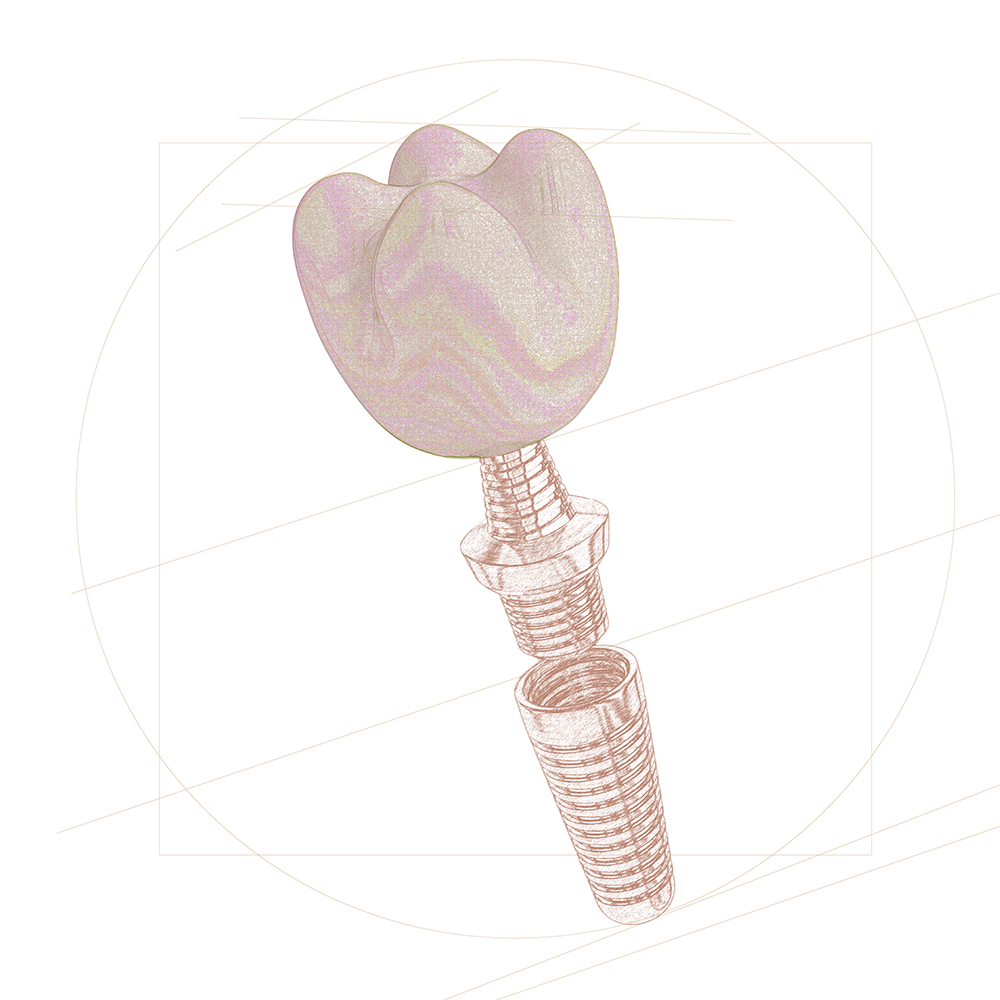Implant Treatment
What is Dental Implant Treatment?
Implant treatment is a method designed to complete your missing teeth in a natural way. Titanium or zirconium screws placed in your jawbone replace the tooth root and prosthetic teeth are fixed on it. The result? A smile that will make you feel complete again when chewing, speaking and laughing! Ideal for those looking for a long-lasting and reliable solution.
What Happens If Missing Teeth Are Not Replaced with Implants?
Tooth loss is not only limited to appearance; your jawbone may erode, your face may become asymmetrical, chewing may become difficult and even digestive problems may occur. Research shows that even the loss of a single tooth can have an impact on health. But don’t worry; with implants, you can prevent these problems and protect your mouth and health. Since other options such as bridges require cutting your healthy teeth, implants are always a more natural choice!
Who is it Suitable For?
Anyone over 18 years of age with complete jaw development can be a candidate for an implant. The important thing is that you have a healthy bone structure and good oral hygiene. Even if you have chronic diseases such as diabetes and blood pressure, your dentist can evaluate your condition and draw a suitable road map. Thanks to modern technology, implants can now be safely performed even in difficult cases!
Which Materials are Used?
The most preferred material is titanium; it is compatible with your body, durable and easily fuses with the jawbone. Zirconium is also a great option if you want an aesthetic look; it offers a natural elegance, especially in the front teeth. Both materials are long-lasting and reliable. Your dentist will personalise the treatment by choosing the most suitable brand and material for you.
How is the Treatment Applied?
First Step: Under local anaesthesia, a small slot is made in the jawbone and the implant screws are inserted. You will feel no pain!
Waiting Time: Wait 2-4 months for the implant to fuse with the bone (this period is getting shorter with technology). If the bone is suitable, a temporary prosthesis can be placed immediately and you will not be toothless.
Final Touches: When the healing is complete, your permanent prosthetic tooth is placed on it; your smile is ready!
What should be considered during and after the treatment?
It is very important to take care of your oral hygiene before and after treatment. If you smoke, cut down if possible because it may slow down the healing process. Avoid hard and hot foods in the first week, listen to your dentist’s recommendations. If you do not neglect the controls, everything will go well!
How is the Healing Process?
A slight pain or swelling is normal at first; but it passes easily with painkillers. Within 2-4 months, the implant integrates with your bone. During this period, you can continue your daily life, just show a little more love to your mouth!
We Are Here for You!
Implant treatment is one of the most effective ways to end tooth loss and give you a natural smile. Do not think ‘I wonder how it will be?’; this process is designed for your comfort and happiness. A meeting with your dentist will answer all your questions. Are you ready to smile at life with a new smile? Contact us; we are at your side for a healthy and confident smile!


